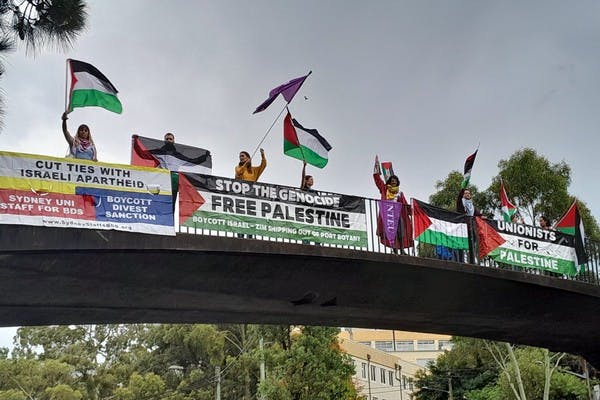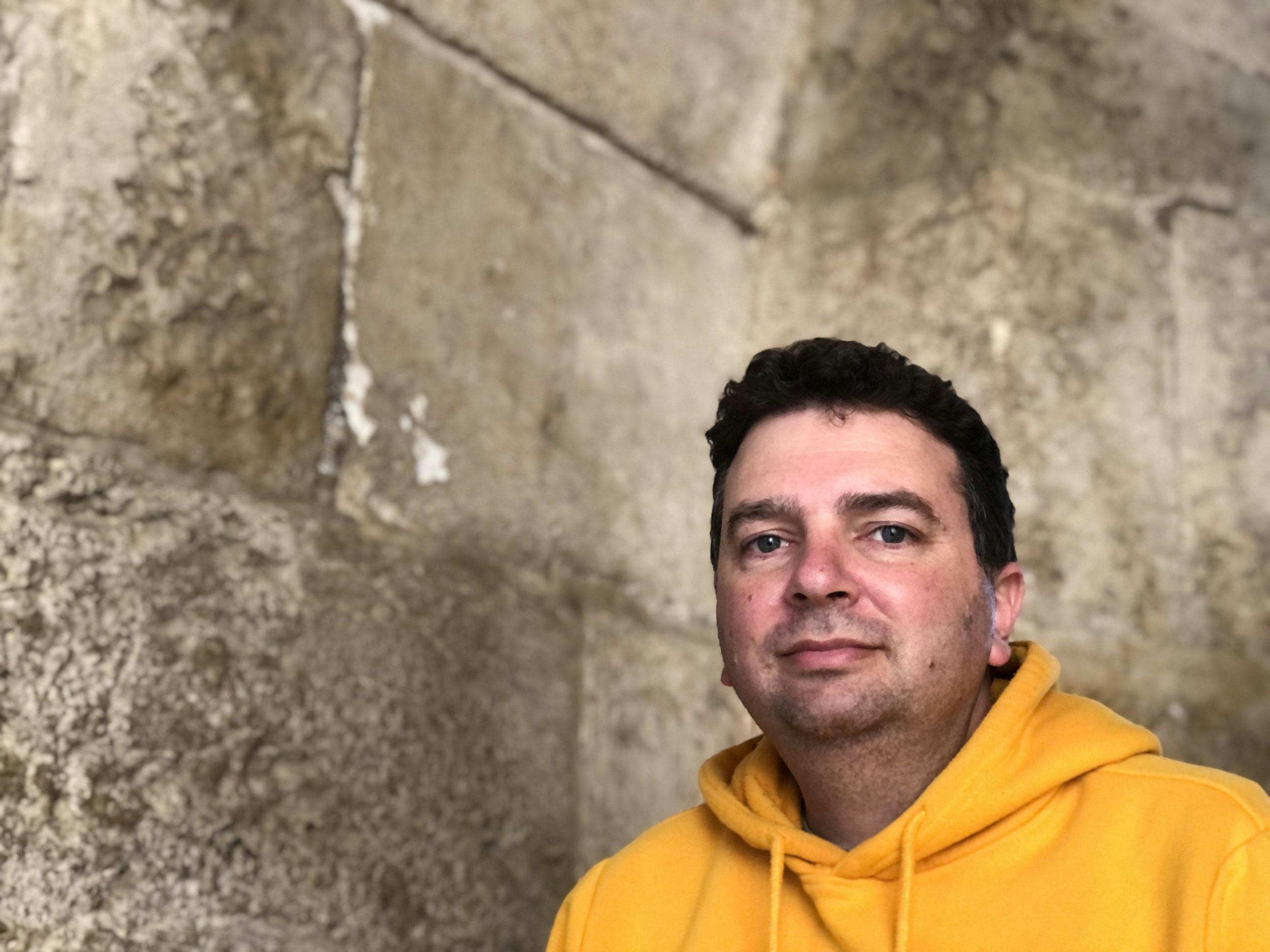Published: 29 September 2023
Last updated: 5 March 2024
RIC BENJAMIN spends a day walking with a shepherd in the Jordan Valley to protect him from settler attack.
Some people ask why we bother protesting. “Walking and chanting can’t change anything,” they say.
Well, walking with a purpose can have power. I saw it when I joined Rabbis for Human Rights (RFHR) on a shepherd escort in Occupied Palestinian Territories (OPT).
The Bedouin walk their flocks in the morning before the heat of the day, so, I was picked up at 5am by Dani Brodsky, OPT organiser for RFHR, with two other volunteers.
This amazing organisation is out in the OPT on an almost daily basis walking with Bedouin shepherds and Palestinian farmers (mostly olive and almond growers) to protect them and their flocks or trees from settler violence, aimed at clearing them from their land. When trees are vandalised or burnt, RFHR organises groups to come and do planting days to replace them.
Our job today was to be present, to simply walk silently among the sheep and provide a visible disincentive to the settlers to come and disrupt the shepherds.
Shepherds from a Bedouin community near a settlement in the northern Jordan Valley have been harassed for months. A shepherd I’ll call Ibrahim showed us these photos of injuries he and his sheep have suffered.


Other times, the settlers have simply opened the taps of the water carriers so that there was no water available for the sheep. The settlers don’t come often, but the last time was only four days before I visited, so the shepherds were on high alert.
Ibrahim asked us to follow his son to the flock that needed escorting. We walked across this dry and rocky landscape for a kilometre before being introduced to the shepherd we would be walking with this morning, whom I'll call Amir.
We walked without speaking in this silent desert landscape, the only sound from the bells on the sheep. Amir clearly appreciated our presence, but he asked us to stay wide of the flock so as not to spook the sheep.
I learned to appreciate that shepherding is a slow affair when it’s done on foot. As the aim of moving the flock is for food in that very barren land, we tended to walk about 500m and then stop for 30 minutes for the sheep to feed, then on again. The shepherds use whistles and calls to instruct the sheep to stop or turn, communicating directly with the flock rather than using dogs, as Australian farmers do.
About 9am we came down the side of a valley towards grazing land near the illegal settlement. This is Bedouin land, so they have every right to graze there, but proximity equals danger.
We were watching the sheep under the shade of a bush, when we heard a discussion in Hebrew float across the valley. Looking up we could see the herders from the settlement. There were six or seven of them - way too many for simply managing a flock. Amir tells us these are the people who had attacked him four days earlier. So, as they spread out along the ridge, Dani asked us to stand up and move out to become more visible.

We did not move down into the valley where the herd was because we do not want to be accused of provoking or creating an incident. We hoped that our mere presence would be enough to avoid confrontation.
For the next 90 minutes we followed Amir and his flock. Spending more time in the sun, to be as visible as possible, we tracked the movements of the settlers across the valley. Eventually the settlers turned their flock, moved away over the ridge and disappeared.
Did we actively prevent a violent incident? Or was this nothing more than what happens most of the time in the OPT - parallel lives of two linked but separate peoples?
Dani and Amir both felt we had helped avoid a confrontation. Amir said he wished we could be here every day.
Dani goes out on herd or harvest escorts four or five days a week in the Jordan Valley or supports others working around the South Hebron Hills.
The commitment of these activists to put themselves in harm’s way to protect or document these infringements on civil and human rights is critically important.
We drove away, back to our air conditioned, café-loving lifestyle, but I feared for the communities we were leaving behind.
All they want is to continue a way of life and livelihood that is generations old.

Less than an hour from Tel Aviv, they wake up on their land, but without any control or protection. Israel’s occupation of the West Bank has corrupted its soul - making it possible for land to be stolen for settlements, for settlers to attack, maim and kill while the army stands back - and too often soldiers stand next to the settler attackers because they are tasked with only intervening when Jewish lives are at risk.
As long as there is an occupation, these things will continue to get worse.
It is a cancer that eats away at Israeli society, where 18-year-old soldiers become brutalised as they are commanded to humiliate and intimidate Palestinians who are just trying to live their lives: children going to school, people wanting to work, grandparents needing medical care.
But at least for today, in a small corner of the Jordan Valley, a Bedouin community was able to graze their sheep uninterrupted with the help of a small group of nervous volunteers.
Rabbis for Human Rights is a grantee of the New Israel Fund.
The names of the shepherds in this story and the exact location in the Occupied Palestinian Territories have been changed to protect them from retribution.
RELATED STORIES
Israelis are losing faith in a peaceful two-state solution – poll (Jerusalem Post)
The survey also recorded a decrease in the number of Arab Muslims living in Israel experiencing discrimination.
The Palestinian dream is dying — and it's a nightmare for Israel (Newsweek)
Just 30 years after the Oslo Accords set the stage for the formation of the first autonomous Palestinian leadership body to be recognised by Israel, the Palestinian National Authority (PA) stands on the brink of collapse, with dwindling territorial control, deteriorating popular support and no clear successor for its aging longtime leader.
On addressing Jews (Peter Beinart & George Bishara, Jewish Currents)
The death of the two-state paradigm provides an opportunity for the Palestinian national movement to once again speak explicitly to Jews.
Heading toward a second Nakba (David Shulman, New York Review)
Top photo: A Palestinian shepherd in the Jordan Valley (Ric Benjamin)




